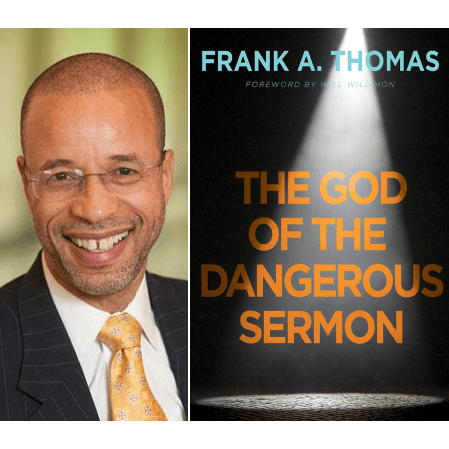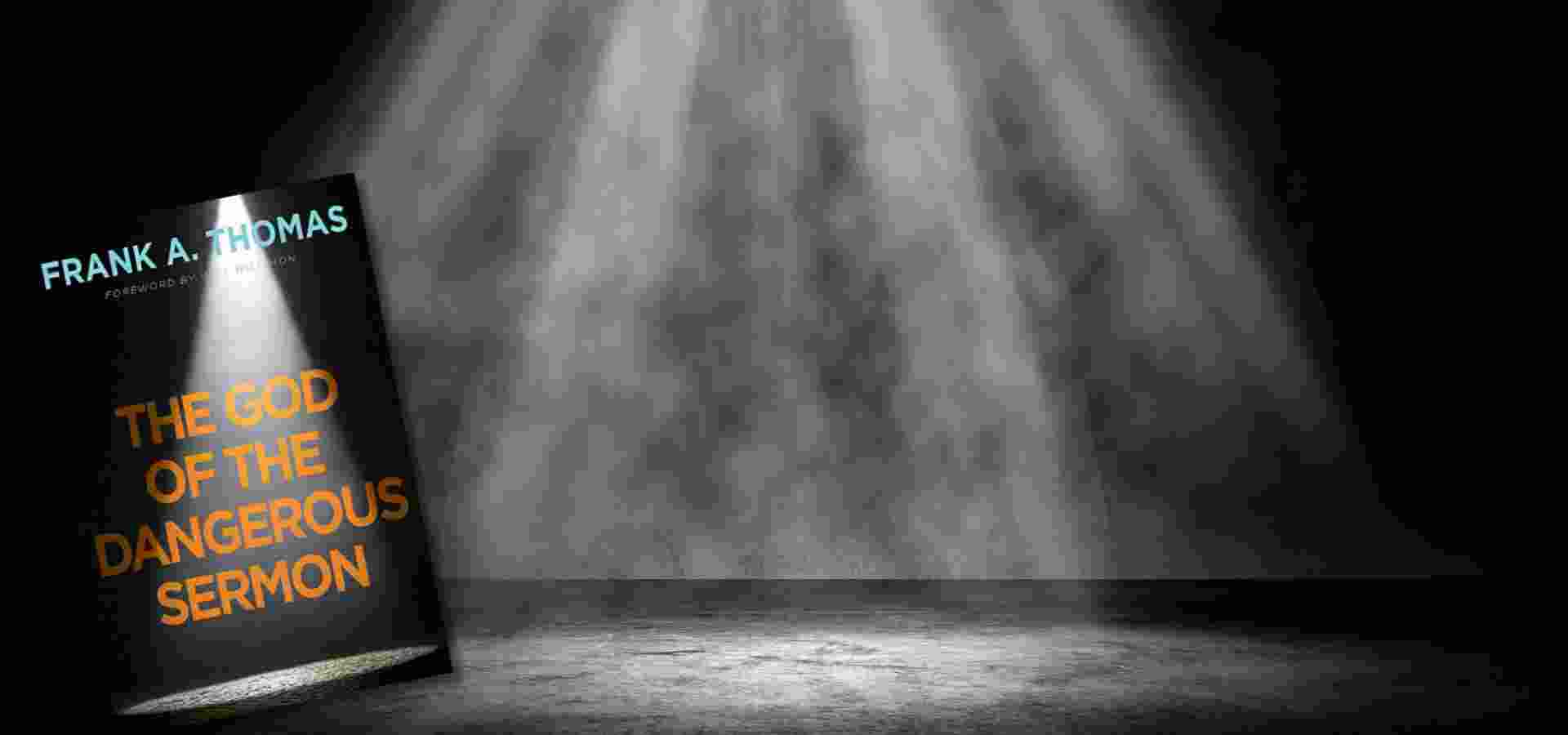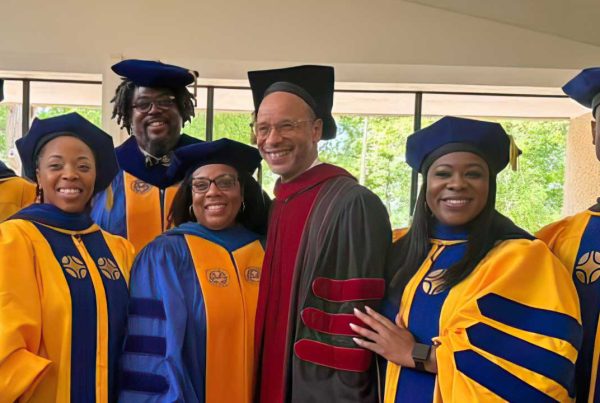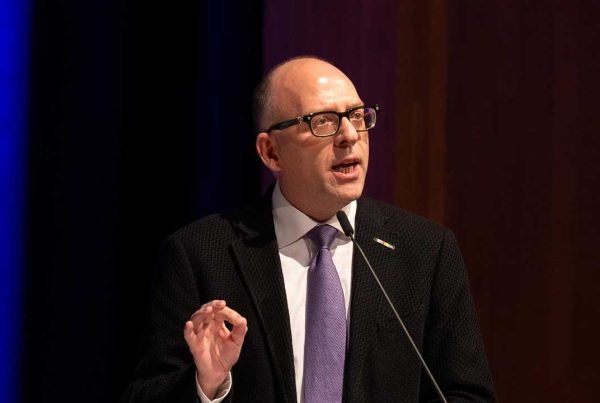 Prof. Frank A. Thomas, Nettie Sweeney and Hugh Th. Miller Professor of Homiletics and Director of the PhD in African American Preaching and Sacred Rhetoric Program, recently celebrated the publication of his newest book, The God of the Dangerous Sermon. This book is the third in a trilogy published by Abingdon Press that addresses the theory, practice, and impact of what Thomas calls a “dangerous sermon.”
Prof. Frank A. Thomas, Nettie Sweeney and Hugh Th. Miller Professor of Homiletics and Director of the PhD in African American Preaching and Sacred Rhetoric Program, recently celebrated the publication of his newest book, The God of the Dangerous Sermon. This book is the third in a trilogy published by Abingdon Press that addresses the theory, practice, and impact of what Thomas calls a “dangerous sermon.”
According to Thomas, a dangerous sermon is “a sermon that upsets the moral hierarchy that is evident in church, family, institutions, and homes. There is a moral order with some at the top and others at the bottom, and when you preach a sermon that speaks on behalf of the marginalized, left out, excluded, and the people on the bottom—especially to the people at the top, it gets dangerous.”
Thomas said that he didn’t initially set out to write a trilogy, but that the books flowed organically. After writing the first in the series, How to Preach a Dangerous Sermon (2018), the consistent response he received was some version of, “if I preach like this, how do I survive it or remain employed at my church?” Thomas wrote the second book, Surviving a Dangerous Sermon (2020), to address just this. After finishing that book, Thomas said that he felt compelled to write more about the theology behind the dangerous sermon.
Important for the theology of a dangerous sermon is a distinction Thomas draws between what he calls a “tribal god,” who underwrites hierarchies and a narrow, insular worldview, and a “universal God” who advocates justice, inclusion, and equity for all.
Beyond its place in this trilogy of books, Thomas’s newest text further expands his articulation of “a rhetorical theology or a theology of rhetorical inclusion that functions in a complementary relationship with theology as evidenced in African American preaching.” Such a theology, he explains, is “a lived and experience-based theology, a liberation theology, seeking expressions of faith outside the normative construct of theology as historically delineated by the theological academy.”
“For some in the Homiletics community,” Thomas explained, “there is a divide between theology and rhetoric. My argument is that the African American preaching tradition is inherently theological and rhetorical. Theology is the lead partner in the preaching dance, but both are necessary.” In fact, careful study and reflection on the relationship between theology and rhetoric is a distinctive aspect of the PhD Program in African American Preaching and Sacred Rhetoric at CTS, and many students in the program are working on rhetorical theology for Homiletics.
Thomas said his primary audience for the book includes preachers and congregants, especially those who help, advise, support, and encourage the preaching ministry of the pastor. That said, this theologically rich and deeply moral work is an important resource for clergy members, leaders, and lay persons alike.
Order a copy of The God of the Dangerous Sermon here.
Learn more about the PhD Program in African American Preaching and Sacred Rhetoric here.





